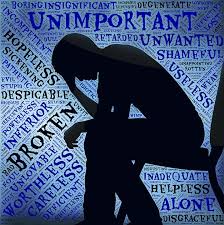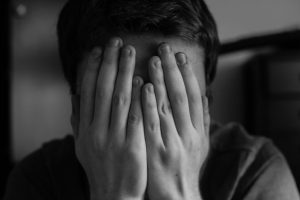During the past decade, online social networking has become such an over-used platform. However, it can be debated whether some of these changes may affect certain and normal aspects of human behaviour and cause psychiatric disorders. There have been several studies that have indicated that the prolonged use of social networking sites, for example, Facebook, have been investigated as to whether these sites may be related to signs and symptoms of depression.
So how often do you use social media on a daily basis? Margaret Duffy, a professor at Missouri University speaks about how Facebook, in particular can lead to depression here:
She speaks about how from her research of 736 students (every single one of them use Facebook), there is a clear link between being envious, the amount of Facebook use, and having depression. It has been established that people are so enviousof people around them, that they feel compelled to still use social media to keep up their profile, to look good and to ‘present their best self’.
We live in a world where social media web sites spread news of engagement and break ups, job gains and losses, or even news of life and death. This means it is extremely easy to become overwhelmed with the celebrity life and the ‘virtual world’. With the amount of and the complexity of social media today, people don’t realise how easy it is to get sucked into the whirlwind of updates and data. Samantha Olson, a medical health journalist, undertook a survey, and found that, on average, participants used various forms of social media about 30 times a week – which came out to about 61 minutes a day!
Which doesn’t sound like a huge amount of time, but can take up a significant amount of time out of your day to day life. Think about how many Instagram posts you could like, how many Facebook videos you could watch, and how many tweets you could post in 61 minutes continuously?

Firstly, lets consider how social media can affect you and how it can make you feel. Do you procrastinate whilst doing work on your laptop and keep Facebook open on your tabs? Do you keep flicking on and off social media to make sure you don’t miss a second? Do you feel left out or upset when you follow someone on Twitter or Instagram and they don’t follow you back? Social media can therefore become a root of unhealthy emotions, that sometimes cannot be controlled.
There is a continuous negative cycle which begins when you spend long periods of time on social media. It furthers the vicious cycle of sitting at home by yourself, being remote and being away from the real world. A loss of face to face interactions and a lack of re-defining healthy boundaries become explicit here. You can become a victim of your own thoughts as you become less attuned and capable to be a part of the outside world, causing yourself to become extremely lonely.
Research from ‘Everyday Health’ has found out that people who have suffered with depression before, or people that start to feel depressed from the use of social media, can be steered into chat rooms and blogs. These can contain people who continuously talk about and prompt negative thoughts, feelings, and emotions. This is instead of engaging with people who are living a more positive, happy and healthier life. Negative thoughts and negative people around you will result in an even worse impact on your mental health, and will be so much more difficult to recover from.

Participating in social media through the lens of depression can enable this type of negative thinking and validate faulty beliefs. You may feel envy, insecure and depressed about what people are posting, and what lives they may be living. Has your friend recently got into a new relationship? Found a new and exciting job? Been on a ‘once in a lifetime’ gap year? Do you feel angry and upset that your life isn’t like theirs? This may be because, you process photos, Tweets, and posts in a way that glamorizes the lives of others, which may or may not be what they always seem. This negative bias can lead you to minimize the positives, when held up in comparison to your own relationships and life experiences.
Below, is an example from @molliebylett‘s Instagram, showing the extreme of the typical Instagram post that an individual may see of someone being on a gap year. The self esteem and confidence of an individual may be affected by seeing posts like these:
So much time is taken away from other activities that might encourage better emotional health, like exercising, meeting up and speaking with friends and family, and engaging in other activities that provide pleasure. This vicious and unhealthy cycle, can cause you a very lonely and miserable lifestyle… Is social media really worth risking your health?